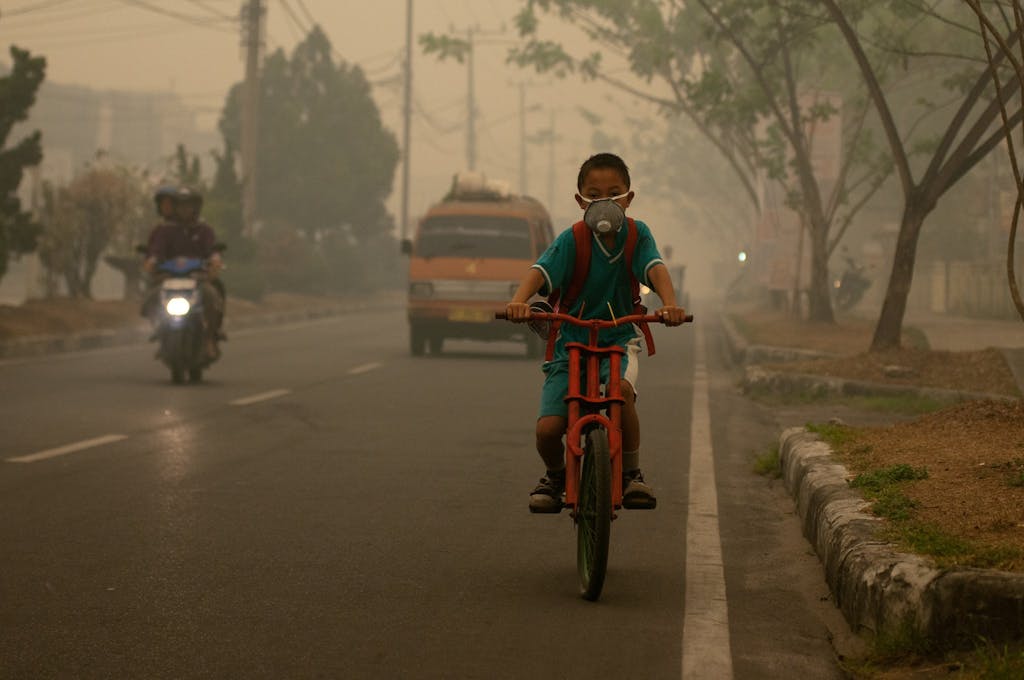2018 was a memorable year for the global health community – from a new strategy to new partnerships to new challenges for progress.
In May at the World Health Assembly, World Health Organization (WHO) Director-General Dr. Tedros Adhanom Ghebreyesus set forward a bold, new vision in the 13th “General Programme of Work” to support countries in reaching all of the health-related targets in the Sustainable Development Goals. The “Triple Billion” Targets set forth in this agenda call for unprecedented partnership to:
- Better protect 1 billion more people from health emergencies,
- Enable 1 billion more people to benefit from universal health coverage, and
- Help 1 billion more people enjoy better health and well-being.
To help turn that ambition to change, global leaders made renewed commitments to break down silos across sectors and tackle pressing health challenges.
- At the UN High-Level Meeting on Tuberculosis that took place during the UN General Assembly, the world committed to increase funding to $13 billion a year by 2022 to prevent and treat tuberculosis (TB), and political leaders from around the world committed to a new declaration, which sets targets to treat 40 million people with TB from 2018 to 2022 and includes commitments to advance research on drugs and diagnostics, promote access and equitable delivery of these tools, and mobilize sufficient and sustainable financing for action to end the TB epidemic.
- During the UN High-Level Meeting on Non-Communicable Diseases, which also took place this year at the UN General Assembly, leaders made a political declaration for greater action, including political commitment, domestic resource mobilization, and universal health coverage to address non-communicable diseases to get on track to achieve SDG 3: Good Health and Well Being by 2030.
- The energy, climate, and health sectors came together at the first-ever WHO Conference on Air Pollution and Health in October. During the conference, attendees set an ambitious target of reducing the number of deaths from air pollution by two-thirds by 2030. A number of countries and international organizations also made 70 voluntary commitments to reduce harmful air pollution.
- In November, national governments, private businesses, veterinary experts, and health advocates all came together at the second Call to Action on Antimicrobial Resistance to find ways to stop superbugs, which threaten to kill 10 million people per year if we don’t take action.

While important convenings happened, challenges also unfolded around the world. Increased unrest in many countries led to public health crises in these fragile areas.
- The situation in Venezuela has led to a multitude of public health problems: there are now 10 times the cases of malaria, measles is skyrocketing, and an estimated 87% of HIV patients aren’t receiving the antiretrovirals they need.
- Yemen is now facing the world’s worst humanitarian crisis, with up to 14 million people at risk of famine.
- The Democratic Republic of Congo is again facing an Ebola outbreak—now the second largest outbreak ever, with nearly 400 confirmed cases and 200 deaths—which threatens to spread to many more in the nearby urban center as efforts to vaccinate people are challenged by safety issues.
These types of humanitarian crises and emerging health threats underscore the importance of strong and well-supported multilateral institutions such as UNICEF, WHO, the World Food Programme (WFP), and others on the front lines of humanitarian response.
Many of the organizations that are first responders to health crises and support essential health services, like procuring lifesaving medications and providing routine immunizations, are asking for robust investments to continue to make gains on major health issues around the world. In November, world leaders demonstrated resounding support by pledging roughly US$1 billion to the Global Financing Facility, a significant step in the right direction.
The Outlook for 2019
As we look ahead to 2019, we need strong global commitment to financing.
A robust replenishment of the Global Fund to Fight AIDS, TB and Malaria is top of mind. As one of the largest global financers of programs to help prevent, diagnose, and treat HIV/AIDS, tuberculosis, and malaria, it has helped save the lives of over 22 million people. Through strong investments in the Global Fund, we will continue to advance the significant, but fragile, progress against some of the most debilitating and deadly diseases in the world.
2019 will also be the year of Universal Health Coverage (UHC). UHC is undoubtedly the only way we will be able to achieve SDG 3. And since health is a building block to achieve most of the other SDGs, it’s imperative that governments, civil society, multilateral institutions, and the private sector come together and commit to taking concrete steps to advance people’s access to essential quality health services without facing financial hardship.
Through the emerging Global Action Plan for Healthy Lives, which will be finalized in September 2019, multilateral partners will significantly enhance their coordinated support to countries to accelerate progress on UHC. The High-Level Meeting on UHC at the UN General Assembly in September 2019 should be a defining moment on the road to achieve SDG3, by establishing the political commitment needed for universal health coverage around the world. If health and well-being for all is going to become a reality, countries will need to demonstrate progress on universal health coverage for their citizens.
Despite the challenges that lay ahead of us, the key global health moments of this year and the anticipation for those in 2019 demonstrate that we have the vision and partnerships needed to reach our goal of health and well-being for all. We must keep up the hard work to reach the most vulnerable, cultivate diverse partnerships, and invest in the organizations well-positioned to combat the health issues that are ever evolving. I am confident we are up to the task.



 View All Blog Posts
View All Blog Posts

